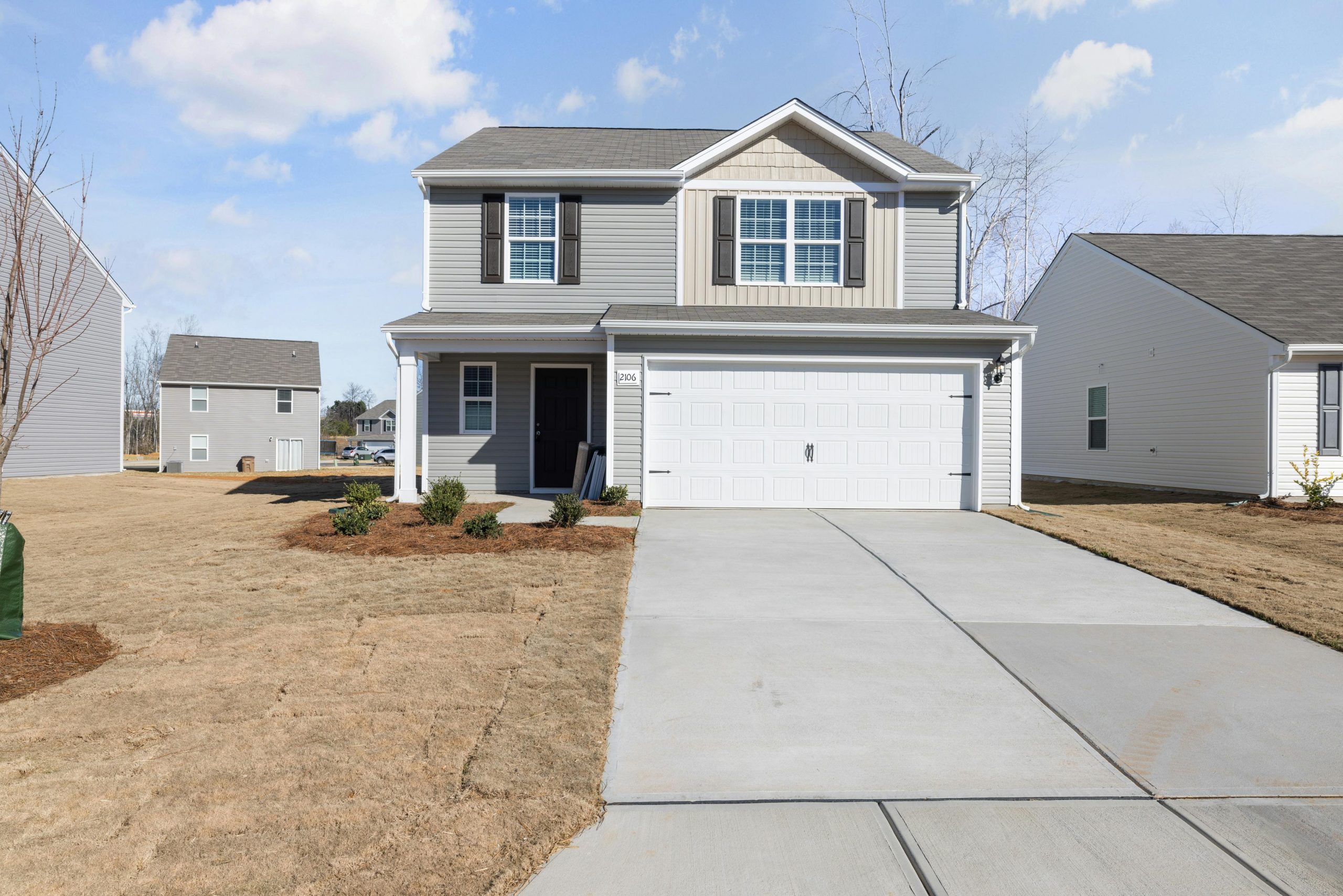Highlights
- Asphalt is more affordable upfront but typically requires more frequent maintenance, such as sealcoating every 2–3 years.
- Concrete lasts longer, with a typical lifespan of 30 years or more, but comes with higher installation costs.
- Climate plays a big role in performance — asphalt handles freeze-thaw cycles better, while concrete performs better in hot climates.
- Maintenance costs vary between the two materials, and proper care can significantly extend their lifespan.
- Appearance and curb appeal matter — concrete offers more decorative options, while asphalt has a clean, uniform look.
- Professional installation is key — hiring skilled contractors can prevent costly repairs later.

Choosing the right material for your driveway is one of the most important decisions homeowners face when planning home improvement projects. Your driveway is not just a place to park your car — it plays a key role in curb appeal, property value, and even how much maintenance you’ll deal with over the years. Two of the most popular choices are asphalt and concrete, and while both are excellent options, each comes with its own set of benefits and drawbacks.
Let’s take a deep dive into everything you need to know about choosing between asphalt and concrete for your residential driveway.
Understanding Asphalt and Concrete Driveways
Before comparing the pros and cons, it’s important to understand what asphalt and concrete actually are.
Asphalt Overview
Asphalt is a mixture of bitumen (a petroleum-based substance) and aggregate, such as crushed stone, gravel, or sand. It is a flexible material that is widely used for roads and driveways. Asphalt driveways are known for their smooth, dark finish and relatively quick installation process.
Concrete Overview
Concrete is made of cement, water, sand, and aggregate. It forms a hard, rigid surface once it cures and can last for decades when properly installed. Concrete driveways can be finished in a variety of ways — from simple broom finishes to decorative stamped patterns — giving homeowners many design options.
Pros and Cons of Asphalt Driveways
Pros of Asphalt
Asphalt has become the go-to option for homeowners seeking an affordable, efficient solution.
- Lower Installation Costs: Asphalt driveways typically cost less per square foot than concrete, making them appealing for budget-conscious homeowners.
- Faster Installation: Asphalt can often be laid and ready to use within 24–48 hours, minimizing downtime.
- Flexibility in Cold Climates: Because asphalt is softer and more flexible than concrete, it is better suited to areas with frequent freeze-thaw cycles.
- Easy Repairs: Cracks and potholes can be patched quickly without replacing the entire driveway.
- Recyclability: Asphalt can be reclaimed and reused, making it an eco-friendly option compared to some other materials.
Cons of Asphalt
While asphalt is affordable and quick to install, it does have its downsides.
- Shorter Lifespan: Asphalt driveways generally last 15–20 years with proper maintenance — less than concrete.
- Frequent Maintenance: Sealcoating is required every 2–3 years to protect the surface from water, oil, and UV damage.
- Softening in High Heat: In very hot climates, asphalt can soften, leading to ruts or indentations if heavy vehicles are parked for long periods.
- Limited Appearance Options: Asphalt is almost always black, which may not suit homeowners looking for a customized aesthetic.
Pros and Cons of Concrete Driveways
Pros of Concrete
Concrete is known for its strength, durability, and aesthetic versatility.
- Longer Lifespan: A well-installed concrete driveway can last 30–40 years with minimal repairs.
- Low Maintenance: Unlike asphalt, concrete does not need frequent sealing, though occasional sealing can enhance durability.
- Variety of Design Options: Concrete can be stamped, stained, or colored to match the style of your home, adding to curb appeal.
- Handles Heavy Loads: Concrete driveways can better support large vehicles or RVs without deforming.
- Cooler Surface: Concrete tends to stay cooler in hot weather compared to asphalt, making it safer for kids and pets.
Cons of Concrete
Despite its strengths, concrete has some drawbacks to consider.
- Higher Upfront Cost: Concrete installation costs are nearly double those of asphalt in many regions.
- Longer Cure Time: You may need to wait 7 days or more before using your new driveway.
- Prone to Cracking in Cold Climates: Freeze-thaw cycles can cause cracks if not properly installed and maintained.
- Repair Challenges: Patching concrete can be noticeable and may not blend perfectly with the existing surface.
- Slippery When Wet: Smooth concrete surfaces can become slick during rain or snow unless treated with a textured finish.
Cost Comparison
Cost is often the deciding factor for homeowners, and asphalt generally wins in terms of upfront affordability.
- Asphalt: Installation usually ranges from $5–$7 per square foot, depending on local material costs and labor rates.
- Concrete: Installation typically ranges from $8–$12 per square foot, with decorative finishes costing even more.
While concrete costs more initially, its longer lifespan may make it more cost-effective in the long run. Consider factoring in the ongoing cost of asphalt sealcoating every few years when comparing lifetime expenses.
Climate Considerations
Your local climate is a major factor in deciding which material to choose.
- Cold Climates: Asphalt is often the better choice for regions with heavy snow and freeze-thaw cycles. Its flexibility helps prevent cracking caused by ground movement.
- Hot Climates: Concrete may perform better in warmer climates where asphalt can soften and rut under extreme heat.
- Rainy or Wet Regions: Both asphalt and concrete benefit from proper drainage design to prevent water pooling and damage.
Maintenance Requirements

Whether you choose asphalt or concrete for your driveway, proper maintenance is essential to keep it looking great and performing well over time. Both materials benefit from regular care, but asphalt generally requires more frequent attention due to its softer and more flexible nature. Understanding what each material needs will help you plan for long-term upkeep and budget accordingly.
Asphalt Maintenance
Asphalt driveways are relatively easy to maintain, but they need consistent care to extend their lifespan. Neglecting maintenance can lead to cracks, potholes, and water damage that may require costly repairs. Here’s what homeowners should do to keep their asphalt driveway in top shape:
- Sealcoat Every 2–3 Years: Sealcoating creates a protective layer that shields the asphalt from water, UV rays, and chemicals like oil and gasoline. This process not only prolongs the life of your driveway but also restores its dark, clean appearance.
- Patch Cracks Promptly: Small cracks can quickly turn into bigger problems if left untreated. Water can seep in, freeze, and expand, causing additional damage. Use a crack filler or call a professional for a long-lasting repair.
- Fix Potholes as Soon as They Appear: Potholes weaken the structure of your driveway and can be hazardous. Cold patch materials are available for DIY fixes, but professional repairs ensure better bonding and durability.
- Keep the Surface Clean: Oil spills, leaves, and debris can stain and break down the asphalt surface. Regular sweeping and occasional washing with a hose or mild detergent can prevent damage.
- Avoid Heavy Loads During Heat: In very hot weather, asphalt can soften. Avoid parking heavy vehicles in the same spot for long periods, as this can cause indentations.
Concrete Maintenance
Concrete driveways are more durable and require less frequent maintenance, but they still need care to prevent staining, cracking, and surface deterioration. Regular upkeep will help you maintain its appearance and structural integrity for decades.
- Annual Cleaning: Use a pressure washer or garden hose with a stiff broom to remove dirt, algae, and stains. For tough oil spots, a degreaser can help restore the clean look.
- Apply a Sealer Every Few Years: Sealing your concrete protects it from moisture, road salts, and stains. This is especially important in areas that experience freeze-thaw cycles or heavy rain.
- Repair Cracks Quickly: Even small cracks can spread over time due to water infiltration and temperature changes. Fill them with a concrete patching compound to prevent further damage.
- Avoid De-icing Chemicals in Winter: Rock salt and chemical de-icers can erode concrete surfaces and lead to spalling (flaking). Use sand or kitty litter for traction instead.
- Control Heavy Loads: While concrete can handle more weight than asphalt, extremely heavy vehicles or equipment can still cause surface stress. Consider reinforcing areas where large loads are common.
Aesthetic and Design Options
If curb appeal is a major consideration, concrete is the clear winner.
- Concrete: Offers stamped, stained, and colored finishes, allowing homeowners to match the driveway with their home’s design.
- Asphalt: Has a classic black finish, but decorative options are limited and more expensive.
Environmental Impact
Environmental considerations may also play a role in your decision.
- Asphalt: Can be recycled and reused, reducing waste. However, it is petroleum-based, which may be a concern for some eco-conscious homeowners.
- Concrete: Produces significant CO₂ emissions during cement production, but its long lifespan means less frequent replacement.
Making the Right Choice for Your Home
Choosing between asphalt and concrete comes down to balancing budget, climate, aesthetics, and maintenance preferences. For homeowners seeking affordability and flexibility in cold climates, asphalt may be the better option. If you prefer a long-lasting, low-maintenance driveway with more design choices, concrete may be the right investment.
Regardless of which material you choose, hiring experienced professionals is essential. Look for asphalt contractors with good reviews or concrete specialists who have proven track records in your area to ensure the job is done right the first time.
Conclusion
There is no one-size-fits-all solution when it comes to driveway materials. Asphalt and concrete both offer unique benefits that can meet different homeowner needs. Take time to evaluate your budget, climate, and design goals, and don’t hesitate to consult multiple contractors for quotes and expert advice. A well-chosen and properly installed driveway can last decades, add value to your property, and make everyday life more convenient.



